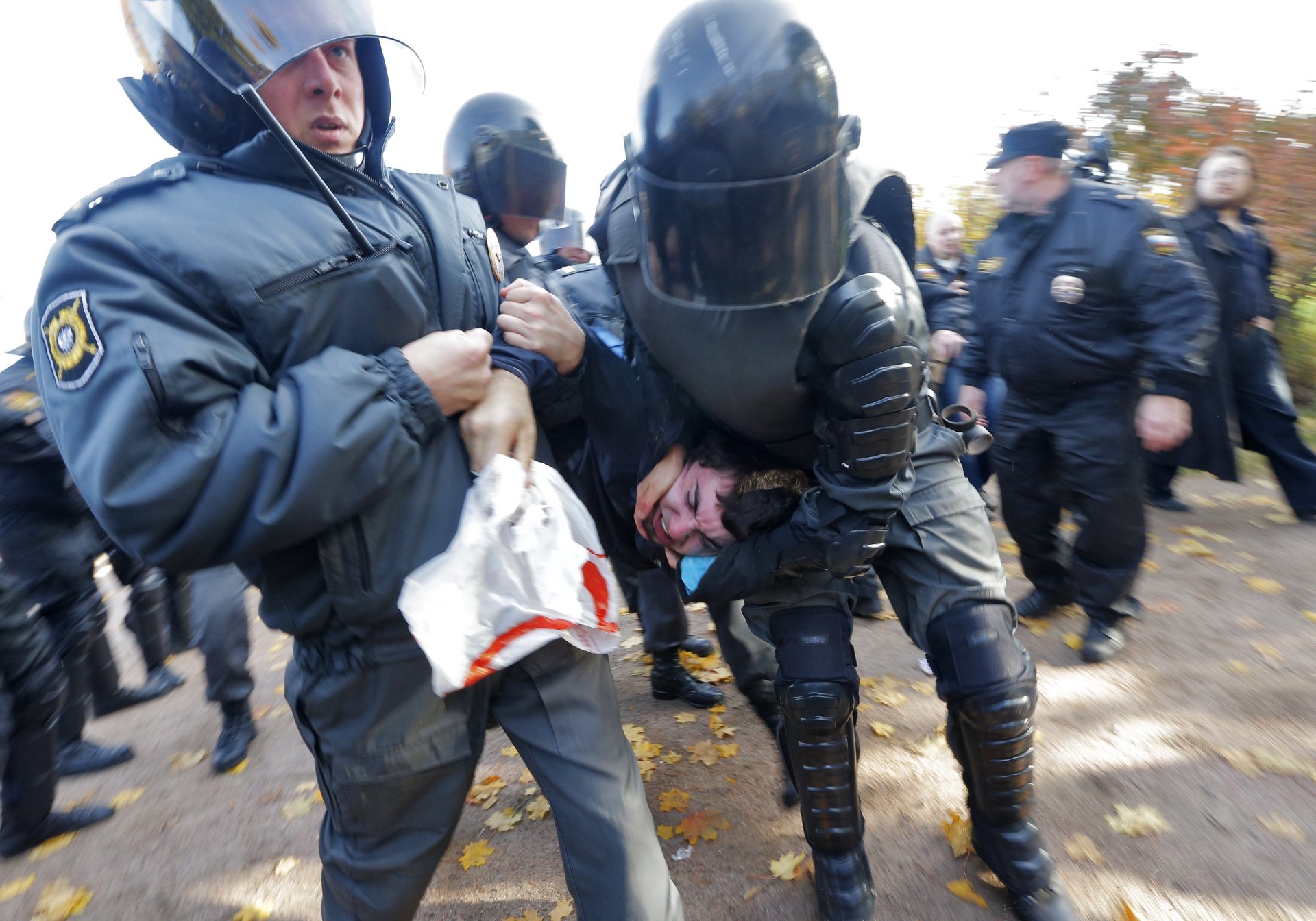An appalling list of human rights abuses last year in Putin’s Russia
Human rights had a bad year in Russia. An extremely bad year, in fact, according to the annual World Report from Human Right’s Watch (HRW).


Human rights had a bad year in Russia. An extremely bad year, in fact, according to the annual World Report from Human Right’s Watch (HRW).
“They have taken authoritarianism to a whole new level,” Rachel Denber, HRW’s deputy director for Europe and Central Asia tells Quartz. The group points to a range of problems, including LGBT discrimination; the crackdown on freedom of expression; and the methods used to quash the Islamic insurgency in the North Caucasus.
Then, of course, there was Russia’s annexation of Crimea and the subsequent war in Eastern Ukraine. In his annual State of the Union speech, US president Barack Obama took a jab at Russian president Vladimir Putin for that move, pointing out that the outcome was to leave the country’s economy “in tatters.” HRW points out that the strong-arming was also a disaster for human rights in the country.
“As the crisis in Ukraine escalated, Russian policymakers adopted laws imposing further, severe restrictions on media and independent groups,” the report notes. An example of these regulations is the “blogger law” that requires sites with more than 3,000 visitors a day to register with the government as mass media, which triggers government censorship.
Another law criminalized s0-called “separatist” calls, which Denber says “can just be anything,” even stating that Russia is occupying Crimea, which she called a ”legal fact.” Private TV channels have also been restricted, as has foreign ownership of Russian media.
Building on already restrictive laws, the Kremlin also clamped down on freedom of association and assembly, Denber says. The government previously required internationally funded rights groups to register as “foreign agents,” and with a new amendment it can do so without a group’s consent. A “foreign agent” in the Russian context “can only mean a traitor and a spy,” Denber notes, calling the list “a registry of shame.” Political trials continue, with activists facing trumped-up charges and long sentences, HRW says.
2014 was a difficult year for those who took their grievances to the streets. Hundreds of people participating in peaceful protests during the Sochi Winter Olympics and after Russia’s occupation of Crimea were arrested. You can now get up to 15 years in prison for “mass rioting.” Authorities also “harassed and intimidated organizations, individuals, and journalists” in the run-up to the Sochi Olympics, and mistreated the families evicted to make way for the Olympic facilities.
The LGBT community faces particular abuses, HRW reports. Smear campaigns and violent attacks on LGBT people continue, and are largely ignored by the authorities.
Less in the news than the conflict in Ukraine, the Russian government is also cracking down on an Islamist insurgency in its North Caucasus region, which includes the republics of Dagestan and Chechnya. Independent media report that 31 civilians were killed in the first nine months of 2014. “Abduction-style detentions, torture, and enforced disappearances persisted in the North Caucasus, as did attacks against government critics,“ the report says, adding that the situation is particularly bad in Dagestan.
There are some areas of improvement, according to Human Rights Watch: The government prohibited discrimination against those with disabilities, for example. Their situation remains hard, however, especially for disabled children who are “warehoused,” Denber says, in Russian orphanages. Palliative care has also been improved in the country, but access to pain medication remains restricted, a huge problem for Russian patients.